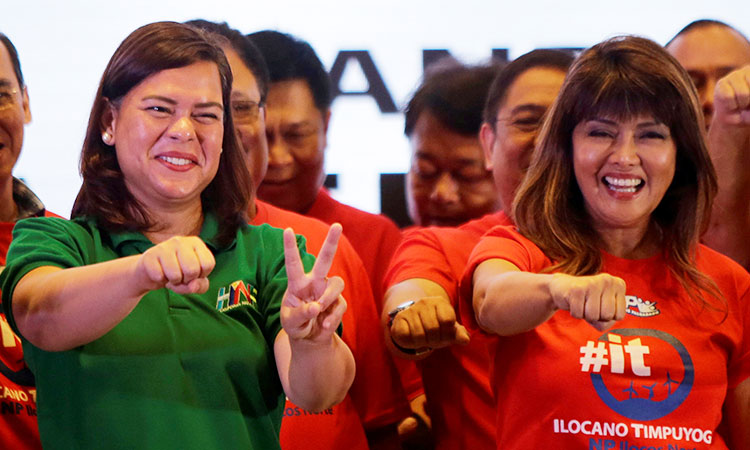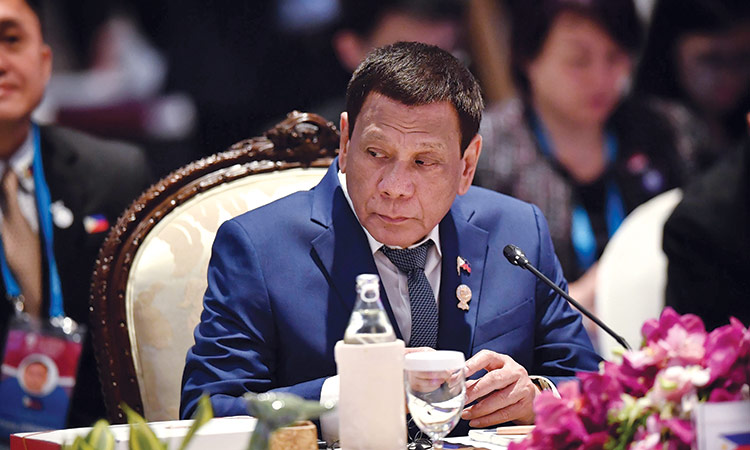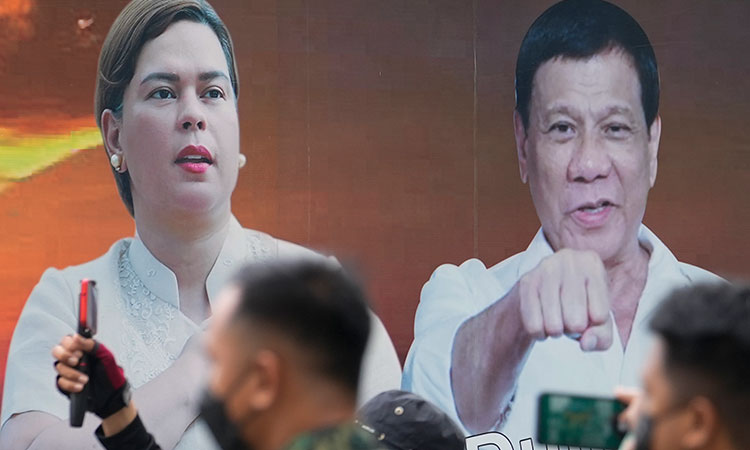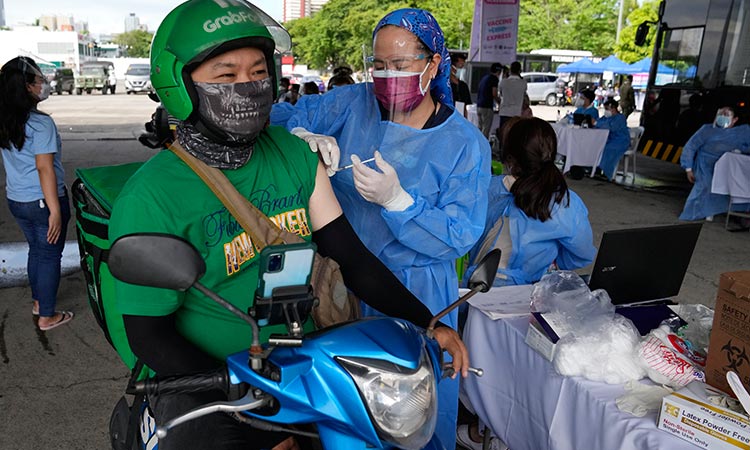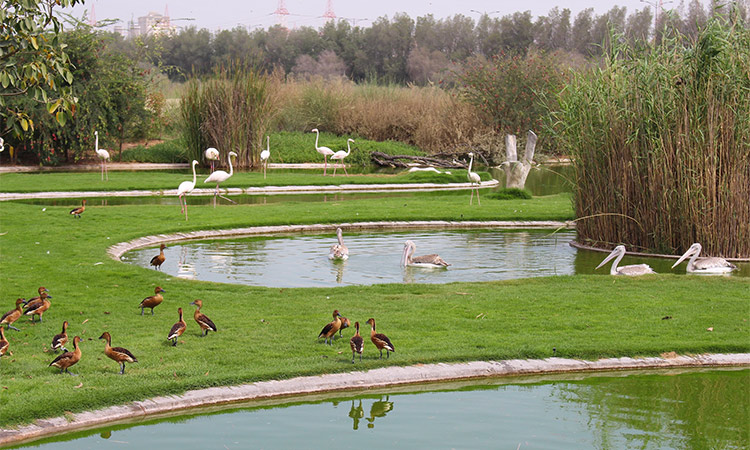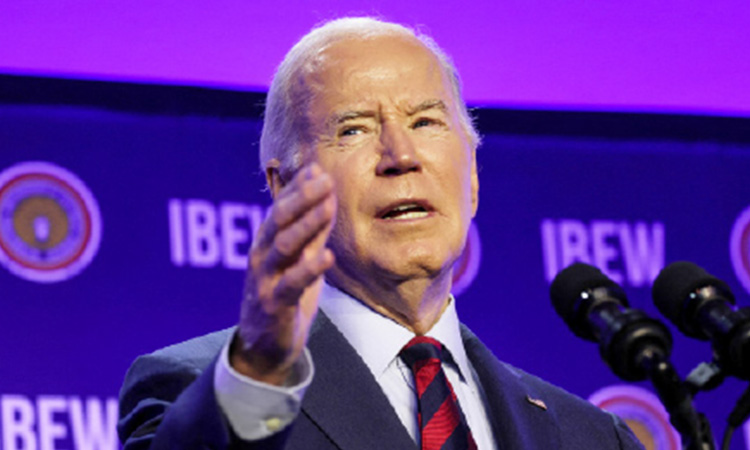Violence and fear negate democracy
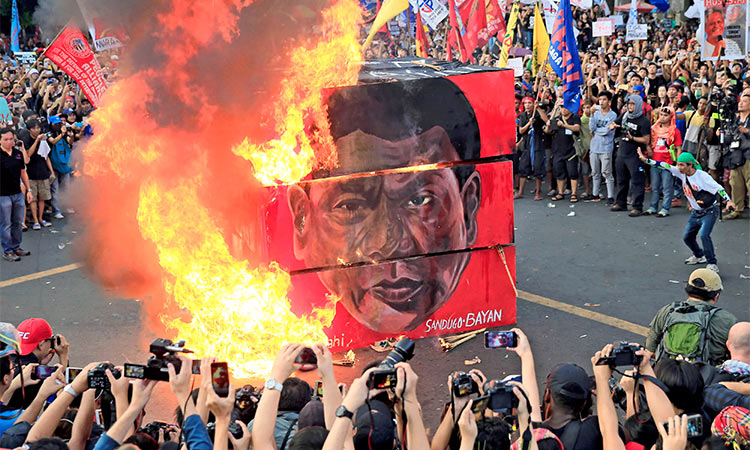
Protesters burn a portrait of President Rodrigo Duterte in Manila. Reuters
Maria Ressa, Tribune News Service
What is happening to the Philippines is a warning to democracies around the world.
More than three years ago, lies laced with anger and hate began to systematically tear our democracy apart in the Philippines. They split open the fracture lines in our society, eroded trust in our institutions, created and inflamed ideas of “us against them.”
Like a virus, this disease spread fast. With the help of social media, President Rodrigo Duterte was elected in May 2016. A month later, there was Brexit in Britain. Then Donald Trump in the United States followed by Jair Bolsonaro in Brazil.
American technology giants created the platforms that enabled manipulation on a mass scale, structurally designed to undermine democracies by playing to our worst selves. Other Western digital companies such as Cambridge Analytica, which was founded by Stephen K. Bannon, the former Trump White House adviser, and funded by billionaire Robert Mercer harvested data on tens of millions of Facebook users to create psychological profiles used to tailor content specifically for them. The goal was to support insidious information operations, whether in politics or business. It is — as it has always been — about power and money.
The Cambridge Analytica whistleblower Christopher Wylie told me this month that the Philippines was used by that company as a “petri dish” for testing tactics used for behaviour modification: among them, to disseminate propaganda and manipulate voter opinion. After all, Filipinos lead the world in spending the most time online (more than 10 hours a day) and on social media for the fourth year running. With Free Basics, Facebook is our internet.
Wylie said what Cambridge Analytica and its parent company, SCL, learned in the Philippines and other countries in the global south, that they could “port” to the West. The United States had the highest number of compromised Facebook accounts in the Cambridge Analytica scandal. The country with the second largest number of compromised accounts? The Philippines.
The destruction of our democracy began with a combination of violence and fear, where rampant lies and vicious personal attacks online pounded their targets into silence. These attacks were then followed by government actions and the use of the law to harass and intimidate perceived critics and dissenters.
I know this first-hand. I co-founded Rappler, a news website that has struggled to hold government to account and end impunity for its brutal drug war, which the United Nations and human rights groups say has killed as many as 27,000 people. We were also the first to sound the alarm globally on the weaponisation of social media.
Immediately after our 2016 Propaganda War series was published, I received an average of 90 hate messages an hour on social media meant to threaten me and tear down our group’s credibility. These attacks were intended to shift public perception and create a bandwagon effect. That was followed a year later by top-down attacks: President Duterte in his second State of the Nation address repeated the lies that spread exponentially on social media. A week after that, the first subpoena for our records arrived. Then numerous fishing investigations turned into cases.
In a little more than a year starting in January 2018, the Philippine government filed 11 cases and investigations against us for alleged foreign ownership, securities fraud, tax evasion and many other ludicrous charges. I had to post bail eight times in a three-month period, and this year, I was arrested twice and detained once.
The data Rappler has gathered show that in 2016 anyone on Facebook who questioned Duterte’s drug war became a target. That included human rights activists, journalists and news organizations. Our values have been undermined and we’ve been painted as corrupt at best and foreign agents and coup plotters at worst.
Current targets are church leaders, lawyers and opposition politicians — basically anyone who questions the government, including Vice President Leni Robredo, who is being investigated for alleged sedition.
The virulent disinformation tactics Filipinos are living with have already been deployed in other democracies. In those places, journalists are on the front lines.
What I’ve learned is that you must fight while you’re strong. You will only get weaker over time because the virus of lies saps civic engagement. Second, demand enlightened self-interest from tech companies. Their platforms cannot be allowed to subvert free will and choice by manipulating us without our knowledge. Third, the press, academia and civil society — the truth tellers — have to join forces to protect the facts. Don’t take the bait of emotions. Seek what we have in common over what drives us apart.
The fight can be won, but it can also be lost. Our experience in the Philippines is a grim reminder that American democracy and democracy as we know it around the world now hang in the balance.
